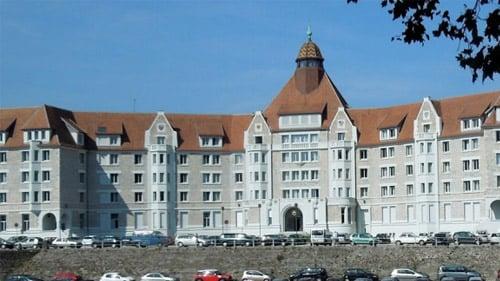Unlocking Efficiency: The Role of Enterprise Network Controllers in Modern IT Infrastructure

In today’s fast-paced digital world, organizations are constantly seeking ways to enhance their IT infrastructure. As networks grow in complexity and demand for seamless connectivity increases, the role of an enterprise network controller becomes crucial. This powerful tool offers innovative solutions that streamline operations while boosting efficiency. Let’s explore how enterprise network controllers work, the benefits they bring to businesses, and key considerations when choosing the right one for your organization. The journey towards optimized networking starts here!
How Enterprise Network Controllers Work
Enterprise network controllers serve as the nerve center of modern IT networks. They centralize management, allowing administrators to oversee multiple devices from a single interface.
These controllers utilize software-defined networking (SDN) principles. This means they separate the control plane from the data plane, enabling more agile decision-making and traffic management.
When data packets enter the network, the enterprise network controller analyzes their flow. It applies policies based on predefined rules, optimizing performance in real time. This ensures efficient routing and minimizes latency.
Moreover, these controllers monitor network health continuously. They provide insights into bandwidth usage and potential bottlenecks, empowering IT teams to make informed adjustments quickly.
By automating routine tasks such as configuration updates and troubleshooting, enterprise network controllers free up valuable resources for strategic initiatives. The result is a more resilient and responsive IT infrastructure that can adapt to evolving business needs seamlessly.
Benefits of Implementing an Enterprise Network Controller
Implementing an enterprise network controller can dramatically enhance your IT infrastructure. One major advantage is centralized management. This allows network administrators to oversee and control various components from a single interface, streamlining operations.
Another benefit is improved scalability. As organizations grow, their networks need to adapt seamlessly. An enterprise network controller makes it easy to add new devices or expand existing configurations without significant downtime.
Security also gets a boost with these controllers. They provide robust features like automated updates and real-time monitoring, helping identify vulnerabilities before they become critical issues.
Additionally, performance optimization is key. These systems automatically adjust traffic loads and prioritize bandwidth for essential applications, ensuring that users experience minimal lag during peak times.
Cost efficiency often follows suit as well; by reducing the need for multiple point solutions, enterprises can cut down on both hardware costs and operational overhead.
Considerations When Choosing an Enterprise Network Controller
Selecting the right enterprise network controller involves careful thought and assessment. First, consider your current infrastructure. Ensure the controller can seamlessly integrate with existing systems without causing disruptions. Compatibility is essential for smooth operations.
Next, examine scalability options. As your organization grows, so will its networking needs. A flexible solution that scales with you ensures longevity and avoids future headaches.
Performance and features should also be high on your list. Look for controllers that offer advanced functionalities like traffic management, security protocols, and analytics capabilities. These tools enhance efficiency and help maintain a secure environment.
Cost is another crucial element to evaluate. While investing in an enterprise network controller could involve significant upfront costs, weigh this against potential savings from improved performance and reduced downtime.
Don't overlook vendor support and community feedback. Reliable customer service can make all the difference when issues arise or upgrades are needed.
By considering these factors carefully, organizations can choose an enterprise network controller that not only meets their immediate requirements but also positions them for future success in an increasingly digital world.
For more info. Visit us:
- Questions and Answers
- Opinion
- Story/Motivational/Inspiring
- Technology
- Art
- Causes
- Crafts
- Dance
- Drinks
- Film/Movie
- Fitness
- Food
- Παιχνίδια
- Gardening
- Health
- Κεντρική Σελίδα
- Literature
- Music
- Networking
- άλλο
- Party
- Religion
- Shopping
- Sports
- Theater
- Wellness
- News
- Culture
- War machines and policy

